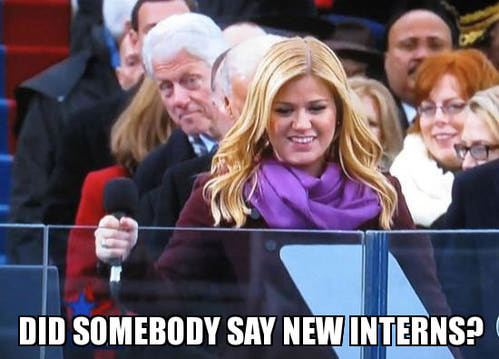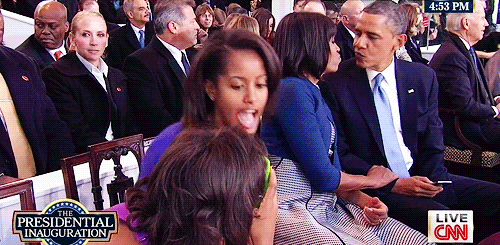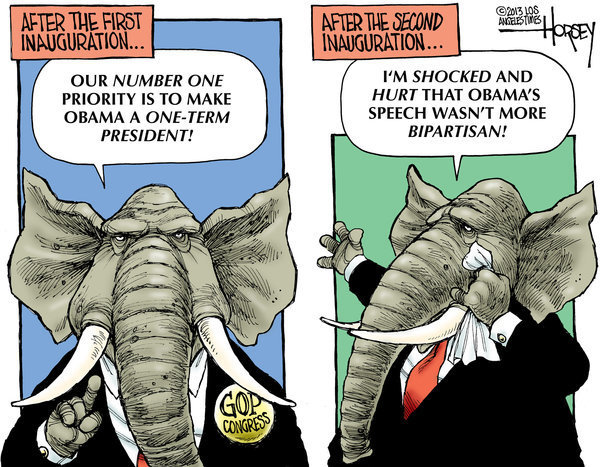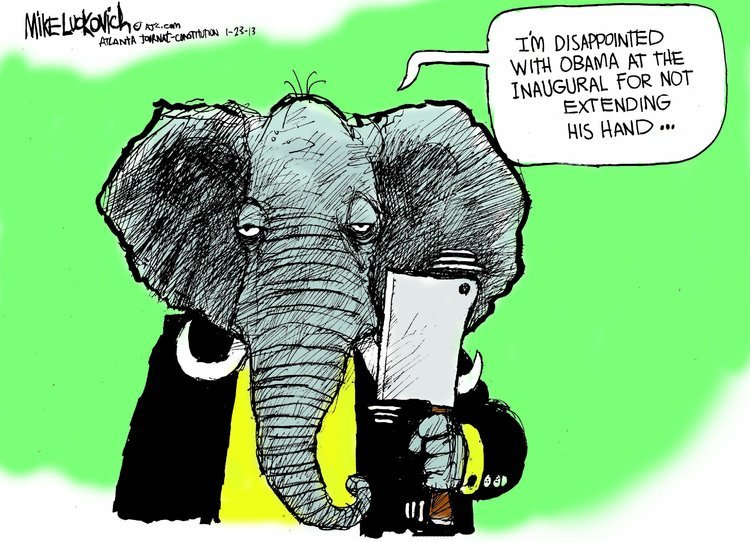“The NRA made an ad saying that Obama is elitist because his kids have armed guards. Yeah, that crazy Obama thinking his kids need special protection. I love the NRA accusing anyone of being paranoid. It’s like a septic tank saying ‘You need a mint’.” – Bill Maher
“In a recent attack ad, the NRA claims that President Obama cares about his own children more than he cares about other children. In response, President Obama was like, ‘Yeah, that’s how families work’.” – Jimmy Fallon
“If the NRA keeps messing with the President’s daughters, they’re going to have to start worrying about Michelle Obama’s guns.” – Bill Maher (referring to the first lady’s arm muscles)
“Yesterday Joe Biden defended the White House’s gun-control initiative by saying that he actually has two guns himself. Then Biden was like, “And I never leave home without ’em.'” – Jimmy Fallon
“Rick Perry said Obama’s suggestions for gun control disgust him. He said the real answer to this problem isn’t laws, it’s prayer. You know, i know you’re not supposed to say this about elected officials, but I would pay to see Rick Perry defend himself against a school shooter with prayer.” – Bill Maher
“I guess that’s just a crazy fantasy, Rick Perry in a school.” – Bill Maher
“The best advertisement for torture is not Dick Cheney and people like that who support it, it is Hollywood. At the Golden Globes, it’s movies. Ben Affleck won for playing a CIA officer, Claire Danes won for playing a CIA officer, Jessica Chastain won for playing a CIA officer and of course, Julianne Moore won for playing Sarah Palin, a master of counter intelligence.” – Bill Maher
“Hey, this week was the season premiere of ‘American Idol’. And this year people are able to nominate their talented friends who don’t want to audition. Yeah, making someone try out for something they don’t really want — or as Republicans call that, ‘the Romney plan’.” – Jimmy Fallon
“I heard that President Obama’s inauguration will have its own iPhone app that includes a map to public restrooms. Or as Al Roker put it, ‘Download complete!’ (which is also what he said after pooping his pants at the White House.)” – Jimmy Fallon
“Happy birthday to First Lady Michelle Obama. She turned 49 years old today. She told a reporter she’d like a nice gift from Barack, but nothing extravagant. Oh, don’t worry. Obama is very responsible when he’s spending his own money.” – Jay Leno
“Today Russia announced plans to send a probe to the moon by the year 2015. Russian scientists say they’re excited to see what they could discover on the moon’s surface. I’ll tell you what they’re going to discover – an American flag!” – Craig Ferguson





